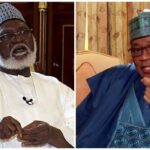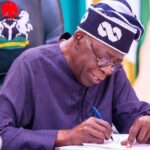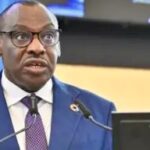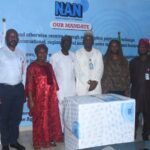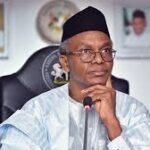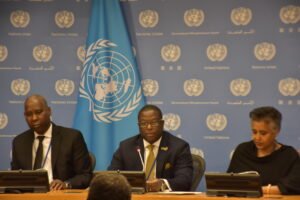By Cecilia Ologunagba
Nigeria and the African Group on Thursday called for an equitable and fair international tax system toward achieving the Sustainable Development Goals (SDGs).
The representatives of the group made the call at a news conference on, “Promotion of Inclusive and Effective International Tax Cooperation at the United Nations,” in New York.
Nigeria had, during the 77th session of the United Nations General Assembly (UNGA), presented a historic resolution, which laid the foundation for the creation of a new system of international tax cooperation that should be universal in scope and approach.
With this, member states agreed for the first time to have a convention on tax cooperation and to annually discuss global tax issues and review progress.
The motion, submitted for consideration by Nigeria on behalf of 54-member African Group of States, was adopted by consensus after some discussions on a failed amendment.
The envoys, however, expressed optimism that promotion of inclusive International Tax Cooperation remained a critical step in the attainment of the 2030 SDGs.
The Chair of the African Group, Amb. Chola Milambo, said the resolution was a step toward a future where sustainable development, encompassing economic growth and environmental stewardship, wwnt hand-in-hand.
“In essence, this Convention is about humanising our approach to global economics. It’s about creating a system that serves not just economies but the people at their core.
“It represents a commitment to a future where every nation, regardless of its economic stature, can thrive.
“On behalf of the African Group, I appeal for collaborative effort and consensus in realising this Convention.
“Together, we can forge a global tax system that is truly representative, fair and effective, benefiting every nation and every citizen,” he said.
Milambo, who is the Permanent Representative to the Republic of Zambia to the UN, said the Group had taken a significant step forward with the proposal of a Framework Convention on International Tax Cooperation.
“This Framework Convention is not merely a policy document; it is a beacon of hope for developing countries that have long sought a voice in the shaping of international tax norms.
“It addresses the critical shortcomings of the current system, which often sidelines the unique challenges and perspectives of developing nations.
“Our proposal acknowledges the contributions of existing bodies like the OECD and the UN Tax Committee, while also recognising their limitations in fully representing the interests of all nations, particularly those in the developing world,” he said.
According to him, the convention’s primary goal is to ensure that all countries, regardless of their size or economic power, have an equal seat at the table in setting the agenda for international tax cooperation.
“This is a step toward rectifying the historical imbalance in global tax governance, offering a more equitable platform for dialogue and decision-making.
“By establishing a more equitable tax system, we unlock greater potential for spending in critical sectors like healthcare and education, pivotal for Africa and the Global South,” he said.
The envoy said the increased revenue generated would enable countries allocate resources where they were most needed, supporting sustainable growth and development.
He said the approach was encompassed under the umbrella of ‘sustainable development,’ ensuring that initiatives directly contributed to the Sustainable Development Goals (SDGs), reflecting shared commitment to a future where holistic progress and well-being were accessible to all.
“The human aspect of this Convention cannot be overstated. By reforming the international financial systems and ensuring fair taxation, we can significantly reduce the strain on international aid.
“More revenue for the Global South translates to less dependence on Overseas Development Assistance (ODA), fostering a more self-reliant and resilient world economy.
“To our partners in the OECD, the EU, the US and the UK, I appeal to your understanding of our shared humanity.
“This Convention is not just a fiscal tool; it is a lifeline to millions who aspire for better healthcare, education and a life of dignity. Your support is crucial in turning this vision into a reality,” the envoy said.
Similarly, Permanent Representative of Eritrea to the UN, Amb. Sophia Tesfamariam, said adopting the resolution would create an avenue for providing resources to finance the SDGs.
According to her, political will is needed to finance the SDGs.
“We need the political will to finance our SDGs and we’re confident that the many groups, especially in the Global South and our friends from the global north will see the value in having comprehensive tax supports.
“It is very important that the revenues that came from our countries, from our own resources, from our own development is what creates development on the ground.
“ODA is great, but what we do on the ground for our people with our resources is what translates into basic standards of living food security, water, education and health,” she said.
Tesfamariam said the African Group had gathered the support of various groups on the resolution, citing G77 and China.
“I think we would do more than advocacy, for lack of a better word. I think we can get what we want,” she said. (NAN) (www.nannew.ng)
Edited by Salif Atojoko




